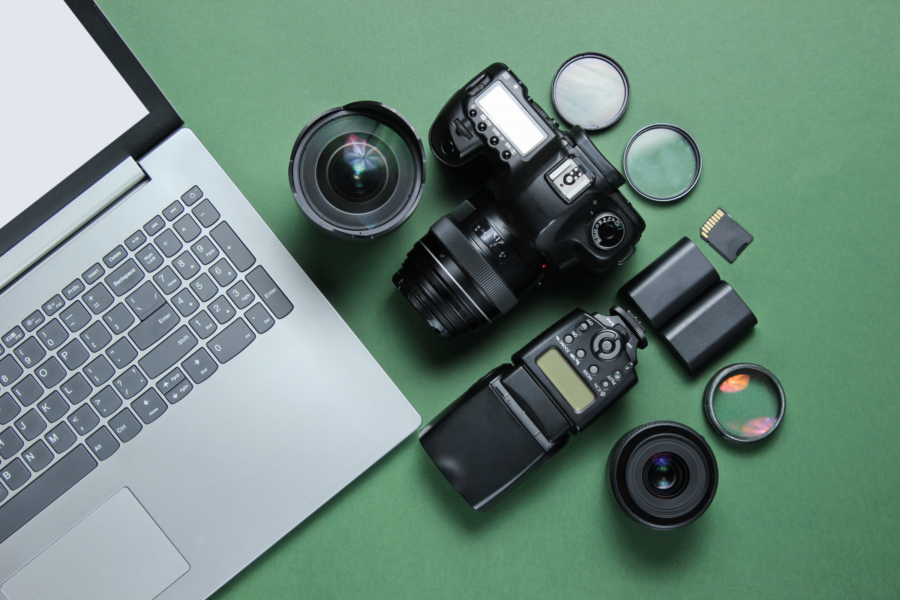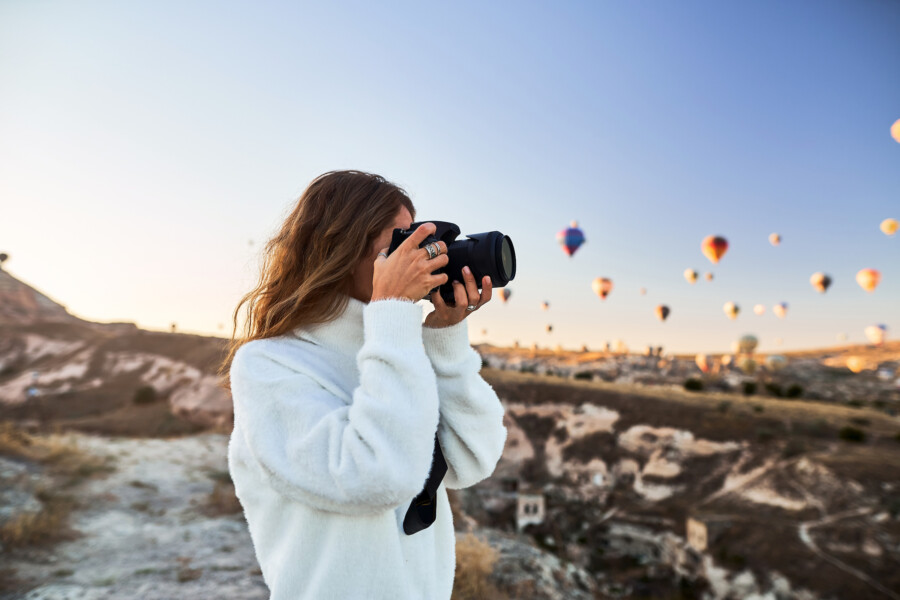Share
Mental Health Help for Photographers (And Everyone Else)
Our team at PhotoShelter is committed to providing resources, advice and inspiration for the photography community. Follow us on Twitter @PhotoS...

Our team at PhotoShelter is committed to providing resources, advice and inspiration for the photography community. Follow us on Twitter @PhotoShelter for the latest updates.
As amusing as some COVID-19 memes and tweets have been (not to mention a welcome break from the endless news cycle), we want to be very clear about the importance of taking care of your mental health right now. A lot of us are feeling particularly isolated, lonely, anxious and, at times, a bit hopeless. The seriousness of what is transpiring around the world is not something to be taken lightly, and we want to encourage a conversation within the photography community.
So how do you care for your mental health when you’re social distancing or staying home under government mandated stay-in-place orders? What can we do to feel connected and safe when everything is so uncertain?
In-between virtual therapy sessions with her patients, I talked to Kaylen Hagadorn, a licensed clinical social worker, psychotherapist and the Clinical Director for New York-based Cobb Psychotherapy. We discussed how COVID-19 is affecting the photographer community, what steps photographers can take to feel better, why we need to consider this coronavirus pandemic a grieving process and much more.
This interview has been edited for clarity and length. Cover photo by Caitlyn Edwards.
Caitlyn Edwards: I think the biggest problem right now that I’m hearing from a lot of our photographers is that in addition to concerns about money and job loss, they’re also suffering from this general fear of the unknown. Nobody knows when this pandemic is going to end. Nobody knows how this is going to affect their business. People are unsure how they’ll pay rent or where their next job will come from. Separate from things like filing for unemployment or artist assistance funds, can you talk about some strategies individuals can take when looking to manage fear?
Kaylen Hagadorn: The number one thing I’ve been talking about with people is that the anxiety or depression they’re feeling is super appropriate. Culturally, when it comes to anxiety, we talk a lot about overreacting to things or having anxiety about things that you don’t need to have anxiety about. But a global pandemic or potentially losing your business and not being able to pay rent? Not knowing when this is going to end? That is super appropriate stuff to feel really anxious about, so try and be accepting of your feelings right now.
I think if possible, probably the most helpful thing people can do is to try to take things in small increments of time. I always recommend breaking things down into minuscule tasks as a way of dealing with them bit by bit rather than looking at the huge, overwhelming scary problem that we’re all facing. If your rent is due on Wednesday and that is stressing you out, focus on only the days between now and Wednesday. Then, after Wednesday, start adding things back in when you feel comfortable and move onto the next thing.
I also have seen a lot of people struggling with this idea that they should be really productive right now and this productivity myth is just piling on to their existing stress.
Yes, that productivity concept has come up with so many of my patients. The internet wants us to believe that everyone should be productive all the time: you should be writing 16 books just today because you aren’t working, you should be making your best work because you “finally have time.” And it’s really cool that that’s how some people deal with stress. I am genuinely happy for them. But a lot of us don’t deal with stress that way and you can’t just magically make yourself be a person who does. If that’s not the case, that’s absolutely okay. It feels bad, but it’s okay.
Right. And a lot of people are also not feeling very motivated to do anything, let alone complete tasks they don’t necessarily like doing—following up about unpaid invoices, filing taxes, redoing their website or reorganizing their archive. Can you explain why routines are helpful at a time like this?
Absolutely. I always think routines are helpful, but especially now. I also recommend my patients break everything down into the tiniest possible tasks. That helps combat that feeling of being overwhelmed or hopeless. A lot of times we have this idea that we’re just going to magically become motivated to do stuff that we don’t like and that never really happens. Most people get motivated once they’ve already started doing a task and can start seeing some progress being made.
So if you have to work on your website and you really don’t want to, I recommend breaking that down into a list of literally every little thing you have to do for your website and then start just doing one of those smaller tasks. So, once you’ve looked at what images you’re featuring on your homepage and checked that off, you’ll likely feel more open to starting another tiny task on your list (and so on).
When you’re actually seeing that you’re getting stuff done versus thinking of it as a major overhaul of your website that will feel a lot more doable.
Switching gears for a second… While I think everyone can benefit from therapy, one of the biggest barriers to seeing someone regularly is the financial cost of therapy. Can you share what free or low-cost resources or choices are out there for someone who might not have health insurance right now?
Well first, if you’re based in New York City like us, there’s NYC Well, a hotline that also does text and live-chat on their website. That has always been available, but right now they’re operating like a crisis hotline so you can call, text or chat on their site 24/7. Anyone you speak with is a trained mental health professional and will provide free in the moment support, and I believe they also have connections to further resources that are free too.
Another option that isn’t completely free but is low-cost is going through a local training academy, psychiatric program or teaching hospital. Getting seen by someone who is in the training program—who is still a licensed professional just going through additional training—is a great way to save some money. I also encourage everyone to ask about sliding scale pricing because a lot of practices have recently altered how those qualifications work. If there’s someone you’re interested in seeing I really recommend reaching out and seeing if they’ll work with you on pricing or can refer you to someone else that is low or no cost.
Other than that, there are tons of free mindfulness classes being made available right now.
I’ve been reading a lot about this idea of our collective grief and shared trauma right now. Do you agree that the discomfort many of us are feeling is grief? Can you speak a little bit about that concept in general?
Yeah, I do agree with it. I think loss of any kind of anything in your life creates a kind of grief, but we don’t necessarily think about it that way culturally. I think sometimes people think it belittles the concept of grief to think about grieving anything other than a person. But people are losing so much, whether that’s jobs, people they love, plans for the future, you name it. When you think ahead about your life and imagine it a certain way, you also imagine it as a person who can go outside and interact with your friends or extended family. Humans are inherently social creatures, and I think we are all experiencing extremely significant collective loss about the stuff that we thought was going to happen. I see any kind of loss as creating grief but especially on this big of a scale.
Do you feel like grief or fear affect artists or creatives differently than the average person? I think people’s partners or friends or family might also be struggling to understand the magnitude of why this affects creative people so deeply (outside of the financial aspect of this).
Oh, absolutely. I think every creative person I’ve ever met is an empath, regardless of whether their art is solitary or something more group-based. Right now we are experiencing a dramatic change in how we connect with people and I imagine it being incredibly challenging for people who are so tuned in to how everyone’s feeling. Also, if you are so tuned in to how everyone is feeling it’s that much harder to not to take everything in like a sponge. I imagine that just gets in the way of feeling like you can create anything. It’s pretty hard to channel your emotions into your craft when you’re also taking on everyone else’s emotions and fear.
On the flip side of that, there’s also an intense desire to help. A lot of photographers are saying they want to get more involved. They want to document this pandemic and are willing to put their own health at risk in order to do so because they feel so strongly about using photography as a historical storytelling tool. I think that frustration, particularly in the photojournalism community, is really strong right now. Yes people want an income but separate from that, there’s a humanitarian aspect to this that is driving people a little crazy, too.
I want to take a moment to honor the photographers who are still working right now. Many of them are in resource-strapped hospitals or listening to tragic first-hand stories about how people are losing loved ones, their community’s beloved small businesses and so on. How can they take care of their mental health?
The biggest thing is to make sure you’re actually setting aside time for yourself, whether it’s sitting and doing absolutely nothing, journaling, going to therapy or even giving yourself permission to just cry for an hour every night. Whatever it is, just set aside some intentional time that allows you to check in with yourself. How am I personally feeling? What are my needs? I think even things as simple as saying, Hey, did I eat today? can be so incredibly beneficial for the mind.
Set aside some intentional time for you that allows you to check in with yourself. How am I personally feeling? What are my needs? I think even things as simple as saying, “Hey, did I eat today?” can be so incredibly beneficial for the mind.
Mental health resources (US):
- National Institute of Mental Health
- NYC Well
- National Suicide Prevention Lifeline – For youth and adults
(800) 273-TALK (8255) - Substance Abuse and Mental Health Services Administration (SAMHSA)
- COVID-19 Emotional Support Hotline at 1-844-863-9314 (New York)
- American Art Therapy Association COVID-19 resources
- Psychology Today
- Anxiety and Depression Association of America
- Creative Live Wellness Classes
- Free Audio Resources for Mindfulness Meditation
- Calm Videos
Mental health resources (non-US):
- Samaritans (UK Crisis Help, Anywhere in the UK or Ireland)
116 123 - Crisis Services Canada
Articles on COVID-19 and mental health:
- That Discomfort You’re Feeling is Grief – Harvard Business Review
- Feeling anxious about coronavirus? There’s an app for that. – Vox
- Some Tips on How to Stay Sane in a World That Isn’t – The New York Times
- Grieving the Losses of Coronavirus – The New York Times
- Opioid Addiction Is ‘A Disease Of Isolation,’ So Pandemic Puts Recovery At Risk – NPR
- Photojournalists Publish Guidelines for Editors During COVID-19 CrisisPhotojournalists Publish Guidelines for Editors During COVID-19 Crisis (Petapixel)
Photo projects and essays:
- The Front Steps Project
- The People of the Pandemic
- Project Social Distancing
- The One Project
- The artist shooting their queer friends in quarantine over FaceTime (i-D)
- Photos Show Some Prison Beds Are Only Three Feet Apart (The Marshall Project)
- Life in the Time of Coronavirus (The Atlantic)
- The Doctor Holding the Camera (New York Magazine)
- This London photographer is beautifully capturing life in isolation (Time Out London)
If you are struggling right now, please reach out and get help. If there are any resources you’d like to see added to this list, we would love to grow it. I encourage everyone to comment below or email marketing@photoshelter.com with any resources or insights you might have regarding mental health.
PhotoShelter is maintaining a master list of COVID-19 resources for photographers, including grants and crowdfunding initiatives, trade organization info and more.


